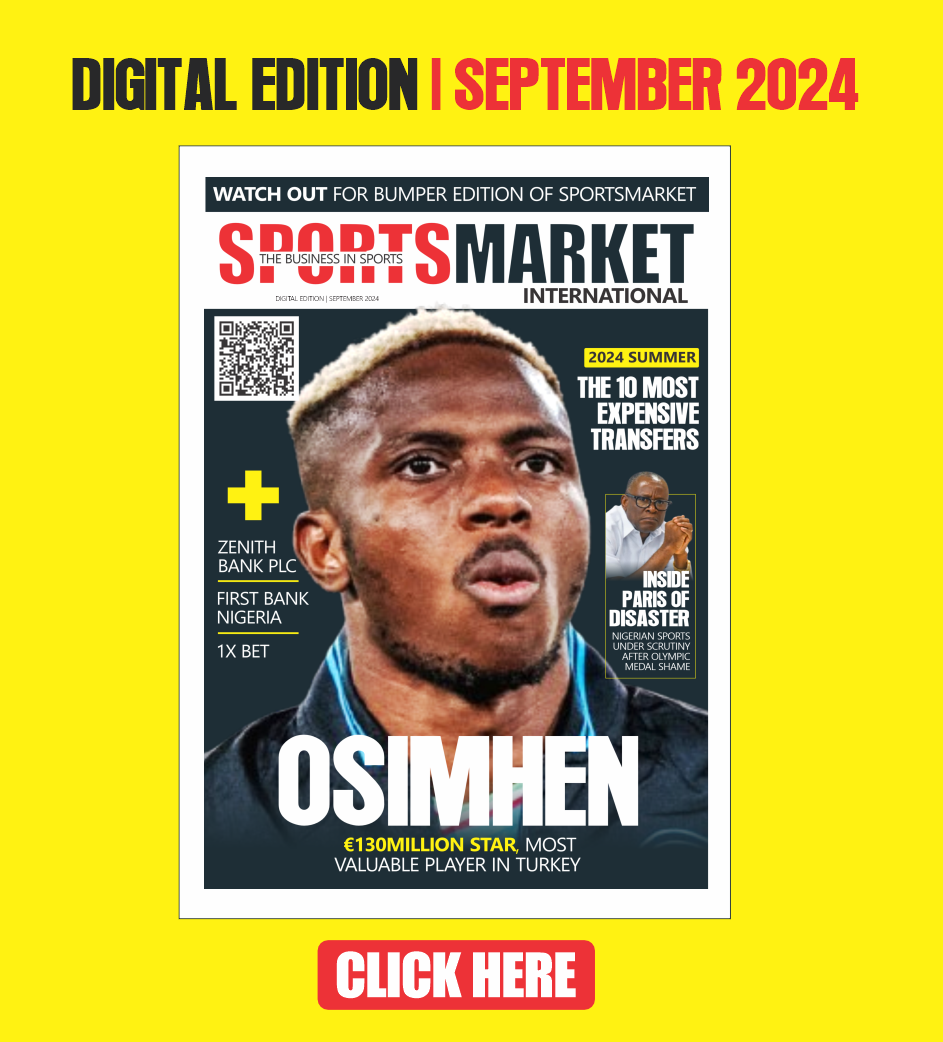Sports Analysis
Ballon d’Or 2023: Who will be crowned the world’s best player?
Published
1 year agoon
By
Ambrose Ijeh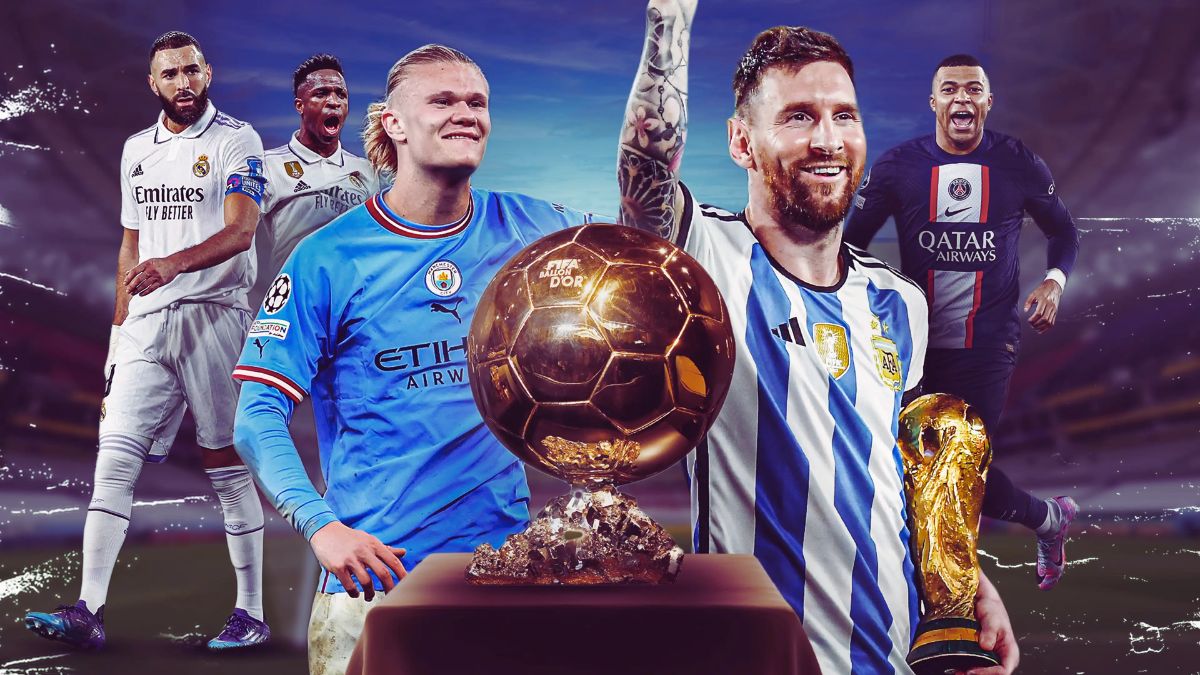
The Ballon D’or is football’s most prestigious individual award. Handed out on an annual basis, it crowns the best male and female players on the planet. This year, the ceremony for both awards will take place in Paris on 30th October.
On the next episode of Football Now we’ll be looking ahead at the contenders for the women’s award, but this week, we’re looking into the favourites for the men’s category.
It’s one of football’s greatest honours, to be nominated for this award. One man who knows exactly what that feels like is former Spain midfielder Gaizka Mendieta. He placed 8th in the rankings in 2000, while he was one of the best players in Europe at La Liga side Valencia.
“It means that what you’re doing is being recognised,” Mendieta told us.
“One of the reasons why you play football is to, of course, win trophies and leave a legacy wherever you go. In my head, I always wanted to be one of the best midfielders in the world and being on that list means what you’re doing is being recognised.”
When it comes to this year’s nominees, a list of 30 talented players are in contention.
Players from 17 different nations representing 17 different clubs are on the shortlist, including last year’s winner, Karim Benzema. He is being recognised mainly for his goalscoring record at Real Madrid in the first half in 2023. In the summer, Benzema left European football and became one of the high-profile transfers to Saudi Arabia.
Manchester City have the most players after they won the treble in England. Erling Haaland, Kevin De Bruyne, Rodri, Ilkay Gundogan, Bernardo Silva and Julian Alvarez all played big parts in their Premier League, FA Cup and Champions League successes. Alvarez was also part of the Argentina 2022 World Cup winning squad, which is also being factored into the voting.
Of course, the main man of that team was Lionel Messi. He is the joint favourite heading into the ceremony, with Manchester City’s Haaland. What the pair have achieved in the last 12 months have been spectacular in their own rights. The problem is, there can only be one winner.
“Sentimentalists will want Messi to win it again,” football journalist Ben Jacobs told us, “whereas Haaland winning it would signify the start of a new era.”
“Haaland scored 52 goals in his debut season for City, in only 53 games. But then Messi won the World Cup and has also been on fire for Inter Miami since his move to the MLS. In the same way Messi has won multiple Ballon d’Ors over the years, Haaland could go on to do the same if he wins this. Either way, we’ll get a story if either are successful.”
The ceremony in Paris later this month will honour more than just the Ballon d’Or winner. Also included will be the Kopa Trophy, which will recognise the world’s best young player under 21 years old. Again, it is another packed shortlist filled with talent, but one man leads the way.
Real Madrid midfielder Jude Bellingham has truly taken the football world by storm in the last 12 months. After catching the eye of many for England at the World Cup himself, he made a big money move to Spain in the summer after three seasons of really impressive football in Germany at Borussia Dortmund.
He’s only 20 years old and has the world at his feet. For England fans like Ryan Adsett, founder of The Social Room, it’s one of the most exciting prospects their country has ever produced.
“The credit should go to Jude Bellingham himself, because taking the career step to a club like Real Madrid is a huge decision,” Ryan explained.
“There were plenty of links to English clubs like Manchester City and Liverpool, but to take the step he did and wear the iconic no.5 shirt is pretty insane.”
So Bellingham leads the way in terms of the young talent, whereas it’ll be a battle between Messi and Haaland for the main award. All the winners will be revealed at the ceremony in Paris on October 30th, and whoever lifts the trophy will be more than deserving of the accolade.
Author
You may like
-
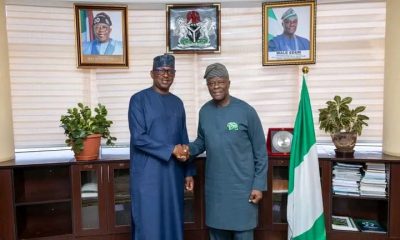

Shehu Dikko Visits Finance Minister, Discusses Building Nigerian Sports Economy
-
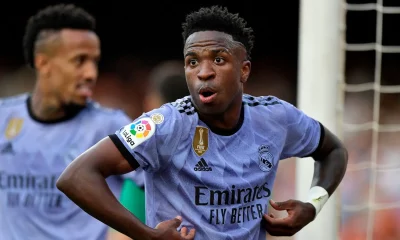

‘We Know Who Deserved This’ – Vinicius Receives Widespread Support After Ballon d’Or Robbery
-
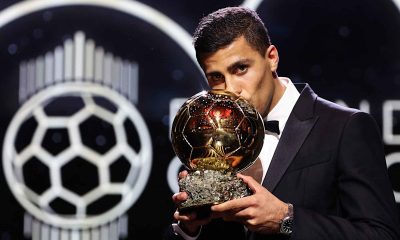

Rodri Becomes First Man City Player To Win Ballon d’Or; Vinicius Reacts
-
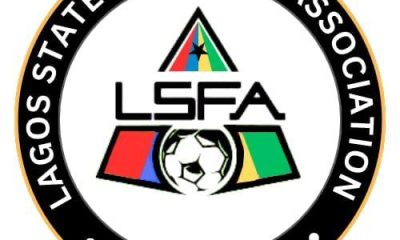

Lagos FA Ready For Super Falcons, Algeria Friendly
-
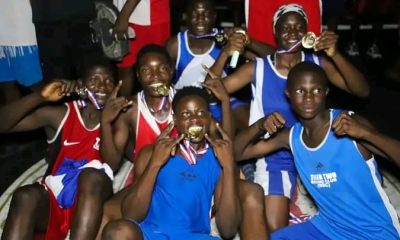

Champions Emerge At Lagos Individual Boxing Club Championship
-
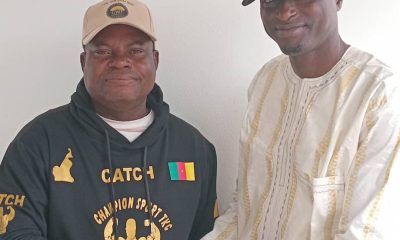

Pro Wrestling Training In Benin Republic: World Wrestling Approval Thrills Olukoya
Sports Analysis
REVEALED! The Genius Of Andre Iniesta
Published
3 weeks agoon
October 8, 2024By
Ambrose Ijeh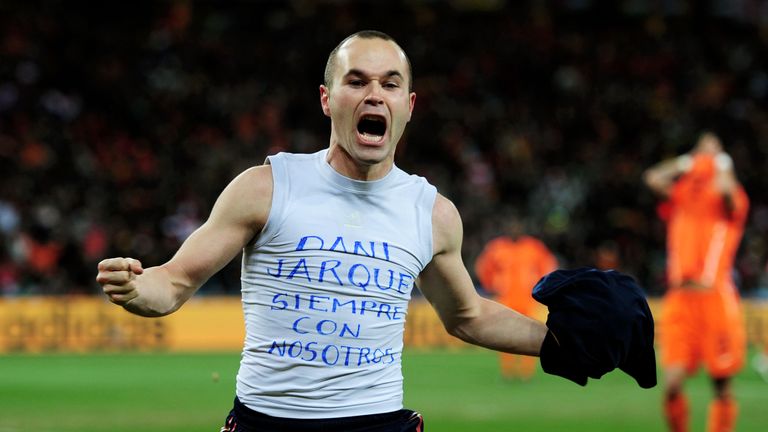
Andres Iniesta has announced his retirement from professional football but goes out as a true legend of the game
Andres Iniesta announcing his retirement has prompted an outpouring of love for a player who brought so much joy. His status in Spain is easy to explain but his admirers extend worldwide, such was his ability to bewitch with the ball.
As a journalist, the job often involves asking players and coaches about those more famous than themselves. It occasionally evokes a grimace. Others will have asked about Lionel Messi before. The guard can go up. With Iniesta, it was never like that.
Mention of his name, whether beside pitches or at press conferences, usually prompted a smile. People could not resist talking about him warmly. That the question had even been asked was almost like being welcomed into a fan club. So, you get it too.
Albert Capellas coached Iniesta as a young player, although he would use the word coached loosely. Even then, he understood the dynamic. “I trained Iniesta for several years and I always say that Iniesta came into this world to show us how to play football.”
Capellas’ view of the true greats was simple. “You do not correct them. They show you the way.” Pep Guardiola is rightly credited with transforming Barcelona, fashioning arguably the greatest side of them all, but it was possible, in part, because of Iniesta.
Together with Xavi Hernandez, they reshaped the game, putting opponents on what Sir Alex Ferguson would call the carousel. Twenty years ago, midfields were for the muscular. Iniesta and Xavi changed that. Possession became king. Mind over muscle.
Since then, he has won every trophy there is to be won, a champion of Europe and the world with Spain, as well as those four Champions League wins with Barcelona. Conqueror of La Liga on nine occasions, there were even a few more gongs in Japan.
Also See:
Stream Sky Sports with NOW
Download the Sky Sports app
Transfer Centre LIVE!
Football features
Not bad for the boy from Albacete who has cried as a 12-year-old boy as he struggled to adjust to life at La Masia, Barcelona’s academy. He was a reluctant hero, but a hero nonetheless – scorer of that goal in extra-time that clinched the World Cup for Spain.
Andres Iniesta struggled following the death of his friend Dani Jarque
Image:
Iniesta paid tribute to his friend Dani Jarque after scoring in the World Cup final
He was a fitting scorer. His old Barcelona colleague Juan Roman Riquelme, a maestro himself, rated Iniesta as the player who understood football like no other, always choosing the right moment to move forward or back, speed it up or slow it down.
Shooting, as he did that day in South Africa, is a skill that can be learned, argued Riquelme. The awareness that Iniesta possessed was something else. “The only thing that cannot be taught or bought. That is something that you are born with.”
A conversation with Robert Moreno comes to mind. He was Luis Enrique’s assistant for three years at Barcelona, during which time Iniesta won his final Champions League. As with Capellas, he saw himself as guided by the great man rather than there to instruct.
Stream Premier League on Sky with NOW
“Sometimes your job is to give lots of information. But at the top level, you are not there to teach them everything. You are there to put them together to make the most of the team that you have. Sometimes that means you need to shut up and let them play.”
“This is the big difference with these players. Lesser players need your help. These players let you know that you are there because they need someone to sit on the bench and pick the team.” Even comprehending their decision-making process is difficult.
“What the best players in the world do is impossible to explain. Ask Xavi or Andres Iniesta why they have done something and they do not know. But you did it? ‘Yes,’ they say, ‘but I do not know why. I was on the pitch, this felt like the best solution so I did it.'”
Source: Sky Sport
Sports Analysis
Aruna reclaims top spot as Nigerian leaps to 17th in ITTF Ranking
Published
5 months agoon
May 28, 2024By
Ambrose Ijeh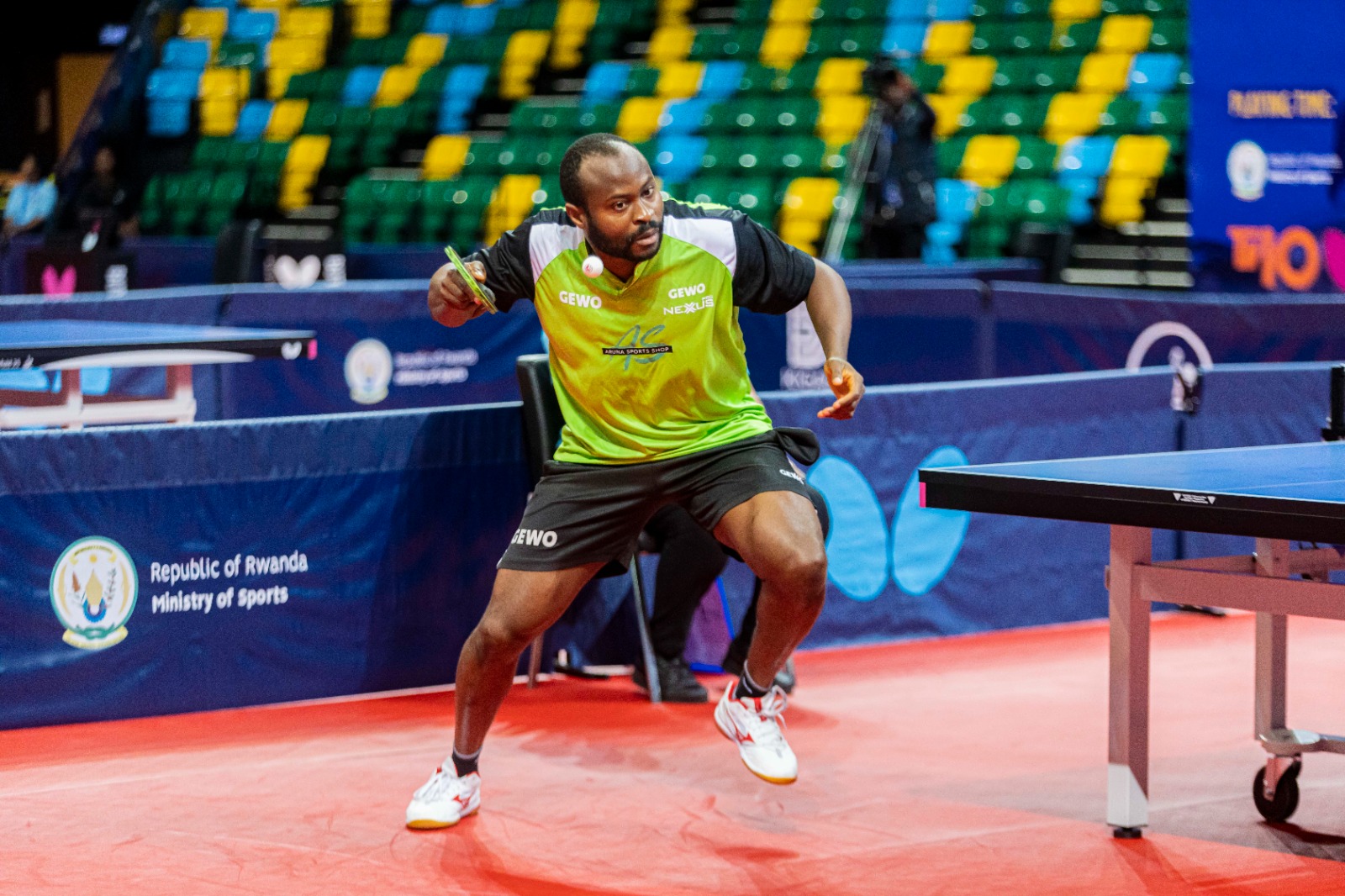
Less than two months after surrendering the top spot in the continental ranking, Quadri Aruna has reclaimed his place after leaping to 17th place in Week 22 of the 2024 ITTF Ranking released on Tuesday, May 28 by the world table tennis ruling body.
However, Egypt’s Omar Assar slipped to 22 in the world rating after occupying the top spot in Africa in the last two months following his triumph at the last African Games in Ghana.
Aruna, who recently reclaimed the ITTF Africa Cup in Rwanda this month, rose by two steps up the ranking ladder to become the highest rated African in the world.
Assar’s drop in the world ranking was due to the expiration of the quarterfinal points he garnered at the Durban 2023 World Championships in South Africa, and this automatically made him lose some points that prompted his fall in the ranking.
While others are dropping from the pecking order of ranking, Aruna’s points remain static, and the freefall of others prompted his rise in the world ranking.
Africa’s biggest movers in May, Mohamed El-Beiali, who became the third-best-ranked player in the continent after finishing as runner-up at the 2024 ITTF Africa Cup after a 4-0 loss to Aruna in Kigali, dropped to 49th in the world rating.
Despite dropping by a step, Egypt’s Dina Meshref held on to the top echelon of Africa as the 24th best player in the world.
Meshref’s compatriot, Hana Goda, remained static as the best rated African in the world, ranked 31st in the world.
Following the conclusion of all continental quotas for the Olympic Games, players are now eager to pick up their tickets to Paris through the world ranking, which will be in force on June 11 as ITTF concludes the list of participants at the Paris 2024 Olympic Games in France.
Sports Analysis
Which Way Nigerian Football?
Published
7 months agoon
March 25, 2024By
Ambrose Ijeh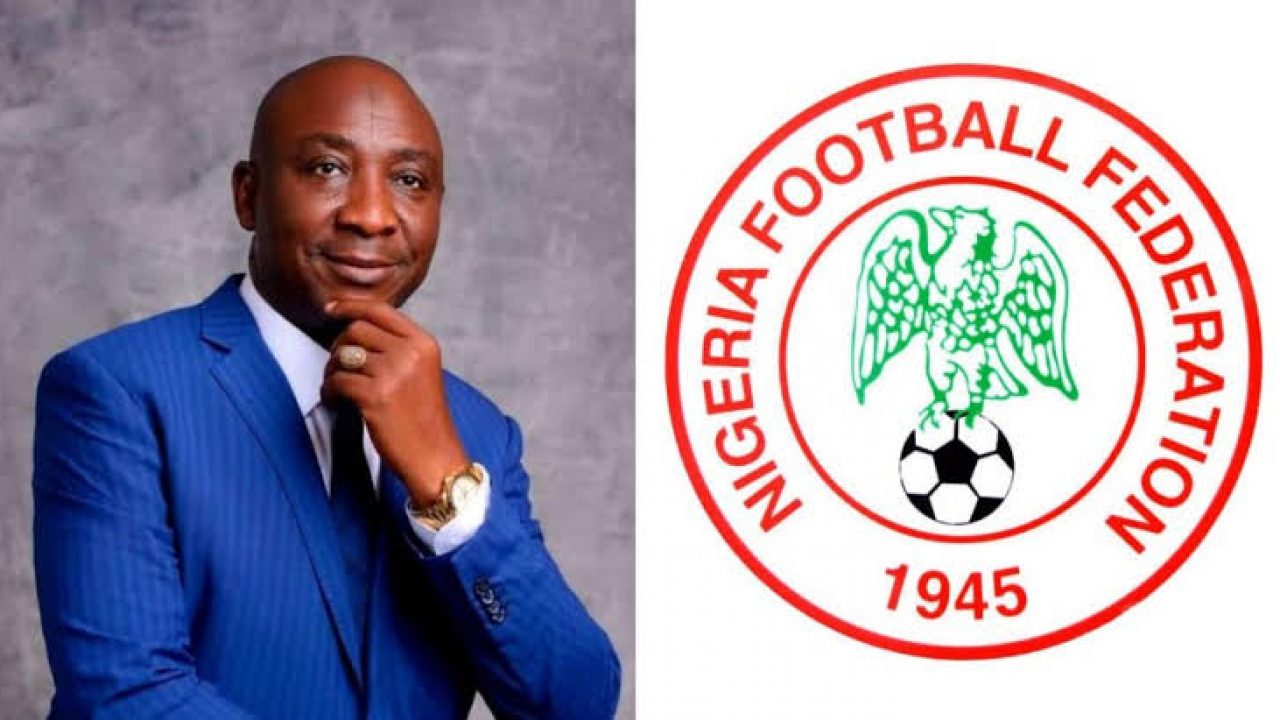
By FAN NDUBUOKE
Once again the issue of hiring a coach for the Super Eagles has come to the front burner of our national discuss. It is a huge debate and I must say, it is very healthy for sports development ,particularly as it concerns football, the opium of Nigerian people.
It is equally encouraging to see the leadership of the Nigeria Football Federation (NFF) throw the job open by calling for applications from qualified coaches both local and foreign.
Advertising the post which is a massive difference between this board and its predecessor which simply handpicked Gernot Rohr and later Jose Peseiro, is proof that the Ibrahim Musa Gusau-led board is headed in the right direction.
A WORD FOR GUSAU
While commending Gusau’s right step, I must advise the NFF President to beware of his aides and football agents.
Experience has shown over time that many of the aides, technical committee members and advisers of the NFF President and even the Sports Minister at a time like this are easily compromised.
Most of them have a vested interest as sponsors or agents of foreign or local coaches. The advice they give in situations like this isn’t for the interest of the nation’s No. 1 sport but to line their pockets and sustain their strongholds.
THE STORY OF CHIDI NWANU
It may interest the NFF President to listen to this story. Before Tunisia AFCON and USA ’94 World Cup, a dummy was planted in a section of the media to run negative stories about Anderlecht’s central defender, Chidi Nwanu, who at that time was the best central defender in Europe.
Each time, the Super Eagles list was drawn, Nwanu’s name was omitted. They said he shunned invitations. Some said he was arrogant…and others said he gave conditions to honour the national call by demanding among other things, a first-team shirt and a private jet to fly him to and fro Lagos and Brussels.
Ace sports journalist now Saturday Editor of Vanguard newspapers, Onochie Anibeze who covered Super Eagles like no other journalist did approached me then as a board member of NFF.
Onochie gave hints to Nwanu, that contrary to the lies peddled around him, there was no official communication between him and the NFF (as now called). I discussed this with our boss then late Air Comdr Emeka Omeruah, rtd) who was shocked, to say the least. He decided to personally invite Nwanu. We moved to his Ikoyi office from where we sent a fax message to Anderlecht and Nwanu respectively.
Nwanu replied within two hours stating that he had never received any invitation let alone rejected or shunned such….neither did he give any condition to play for his country. He was glad to have been invited and promised to honour the invitation. His club Anderlecht equally appreciated the invitation sent to their player. He arrived and showed class all through Super Eagles preparatory games leading to the Mundial. That was how Chidi Nwanu got into the USA ’94 squad to show what Nigeria had missed all along having missed Tunisia ’94 due to the activities of the fifth columnists in NFF. I guess the President of the NFF may see one or two lessons to learn from this story.
HIRING OF FOREIGN COACH
I have no issues with the idea of hiring a foreign coach for the Super Eagles. But I must say that such a coach should have what indigenous coaches don’t have. Westerhof succeeded because he was more of a manager than a coach. He knew the hotel arrangements, vehicles for training and other logistics that may not suit the boys, so he took charge. He even had more access to Aso Rock than the administrators. He lived in Nigeria, watched our local league matches, ate our food and fell in love with our women or the other way round, I’m not sure. Bonfere and Christian Chukwu were more involved with the technical details under his supervision.
Days are gone when you bring in a backyard, a jobless coach from Europe who hasn’t the pedigree, relatively unknown in coaching circles in his native country to lead a big brand like the Super Eagles of Nigeria.
Football is a global sport. It speaks one language. It carries one identity. A football personality cannot be hidden. Certainly not in today’s world where a touch on your keypad will give you all you need to know about anyone around the world.
Thankfully, Gusau didn’t want to repeat errors of the past in hiring coaches for the national team without due consultations. Advertising the post as I said earlier shows the maturity and experience in management and administration as displayed by the present NFF leadership.
However, given the situation of Nigerian economy, particularly the demoralizing parity between our currency and the foreign currencies, can we afford to hire a world class foreign coach? If we must,
NFF should go preferably for a coach who has handled a first-division club or any of the top five clubs in Europe’s top eight leagues. Of course, playing the game to the level of featuring in the World Cup could be a plus.
One only hopes the NFF can pay this class of coaches. Aside from securing the services of any of the aforementioned classes of coaches, the NFF must issue a set of conditions to which the coach must agree.
One, he must live or stay here during the period of his contract. Living here makes it easier for him to work with the NPFL on how best to develop the domestic game. The whole idea is to come up with a working plan to incorporate local players into the national team.
Two, he will work with the coaches of Golden Eaglets, Flying Eagles and U-23 Eagles which are feeder teams to Super Eagles. Working with these teams will help shape the quality of players to make up the numbers for the senior national team when their foreign counterparts arrive at world-classcamp for any game.
PREFERENCE FOR INDIGENOUS COACHES
If the NFF cannot hire a world class coach and the coach cannot live in Nigeria then, the only option left is to employ an indigenous coach.
Rather than bring in coaches like Rohr or Peseiro, I would prefer we use what we have to get what we need. There are coaches here who are better than Rohr or Peseiro.
Emmanuel Amunike, Samson Siasia (if he’s eventually off the hook), George Finidi, Daniel Amokachi and Sunday Oliseh are the names mentioned loudest so far by stakeholders. One or two names here stand out amongst the rest.
Arsenal Wenger wasn’t a known footballer but he remains one of the best-celebrated coaches globally. Fanny Amun was not known to have played for a notable club in Nigeria but he won the U- 17 World Cup as a coach.
Nobody has told us what laurels Rohr or Peseiro had won before getting Super Eagles appointments.
Which player(s) from the U-17 level has Rohr or Peseiro nurtured to stardom that is as big as Kanu Nwankwo, Victor Ikpeba, Celestine Babayaro, Mobi Oparaku, Kelechi Ihenacho, Victor Osimhen and Samuel Chukwueze. But some indigenous coaches have nurtured some of these superstars.
EGUAVOEN AND FINIDI
It is thoughtful of the NFF to keep Austin Eguavoen in his office as Technical Director rather than allow him to shuttle between that exalted seat and the Super Eagles training ground.
If Eguavoen had been handed the interim job as earlier rumoured, it would have been a disaster in the waiting. His office should be busy formulating a playing pattern for our national teams. All national team coaches should be under his department.
This is why the interim assignment given to George Finidi should be a wake-up call to the former Ajax and Real Betis winger. How he handles the games against Ghana and Mali will go a long way in how he would be viewed or rated.
REPOSITIONING OUR FOOTBALL
Sadly, the debate over hiring foreign coaches or not seems to be taking away our attention from the real issue…which is the repositioning of Nigerian football.
The Honourable Minister of Sports should reject the idea of not having an oversight function in the activities of the NFF except it’s for personal aggrandizement. Late Emeka Omeruah(PhD), remains in my opinion, the best NFF president and Sports minister both in terms of achievements and style. As a Sports Minister, he held regular meetings with the leadership of the NFF during which times he conveyed to the board, the feelings and expectations of the Nigerian football family. He never rebuked or gave them directives publicly. ( He was a three-time Sports minister of the Federal Republic).
The present minister must know that football is the opium of the Nigerian people. ( the number of Nigerians that died during the just concluded AFCON should be an eye opener). The success of his tenure will essentially be measured by our achievements in football. He must get involved, albeit remotely.
This ritual of recycling coaches is destroying what is left of our football. Imagine the calamity created by Ladan Bosso in Ghana at the 13th All African Games.
Yet a certain Salisu Yusuf is queueing for a Super Eagles job. Yusuf has been in and around the various national teams for more than one decade without any meaningful contribution or achievement. Same with Bosso who has had four appointments with Flying Eagles in the last 17 years and yet has nothing to show for it. When people say the NFF is micro Nigeria, what it means is that all the drawbacks in Nigeria’s development are present in the Football House. Namely; Religion, Tribalism and the quota system.
Truth be told, the national teams shouldn’t be jobs to rehabilitate or recycle coaches. A coach has to prove that he can handle any of the national teams. When jobs are given on ethnic or religious sentiments, we are bound to either remain stagnant or continue with our retrogressive steps.
• Fan Ndubuoke is former Special Adviser on Sports to Late Sports Minister Comdr. Emeka Omeruah. He was also the national President of the Sports Writers Association of Nigeria (SWAN). Ndubuoke was a board member of the NFF and the immediate past Executive Chairman Imo State Sports Commission.

Shehu Dikko Visits Finance Minister, Discusses Building Nigerian Sports Economy

‘We Know Who Deserved This’ – Vinicius Receives Widespread Support After Ballon d’Or Robbery

Rodri Becomes First Man City Player To Win Ballon d’Or; Vinicius Reacts

Lagos FA Ready For Super Falcons, Algeria Friendly

Champions Emerge At Lagos Individual Boxing Club Championship

Pro Wrestling Training In Benin Republic: World Wrestling Approval Thrills Olukoya
Trending
-

 CHAMPIONS LEAGUE3 days ago
CHAMPIONS LEAGUE3 days agoRodri Becomes First Man City Player To Win Ballon d’Or; Vinicius Reacts
-

 CHAMPIONS LEAGUE3 days ago
CHAMPIONS LEAGUE3 days ago‘We Know Who Deserved This’ – Vinicius Receives Widespread Support After Ballon d’Or Robbery
-

 News3 days ago
News3 days agoShehu Dikko Visits Finance Minister, Discusses Building Nigerian Sports Economy


